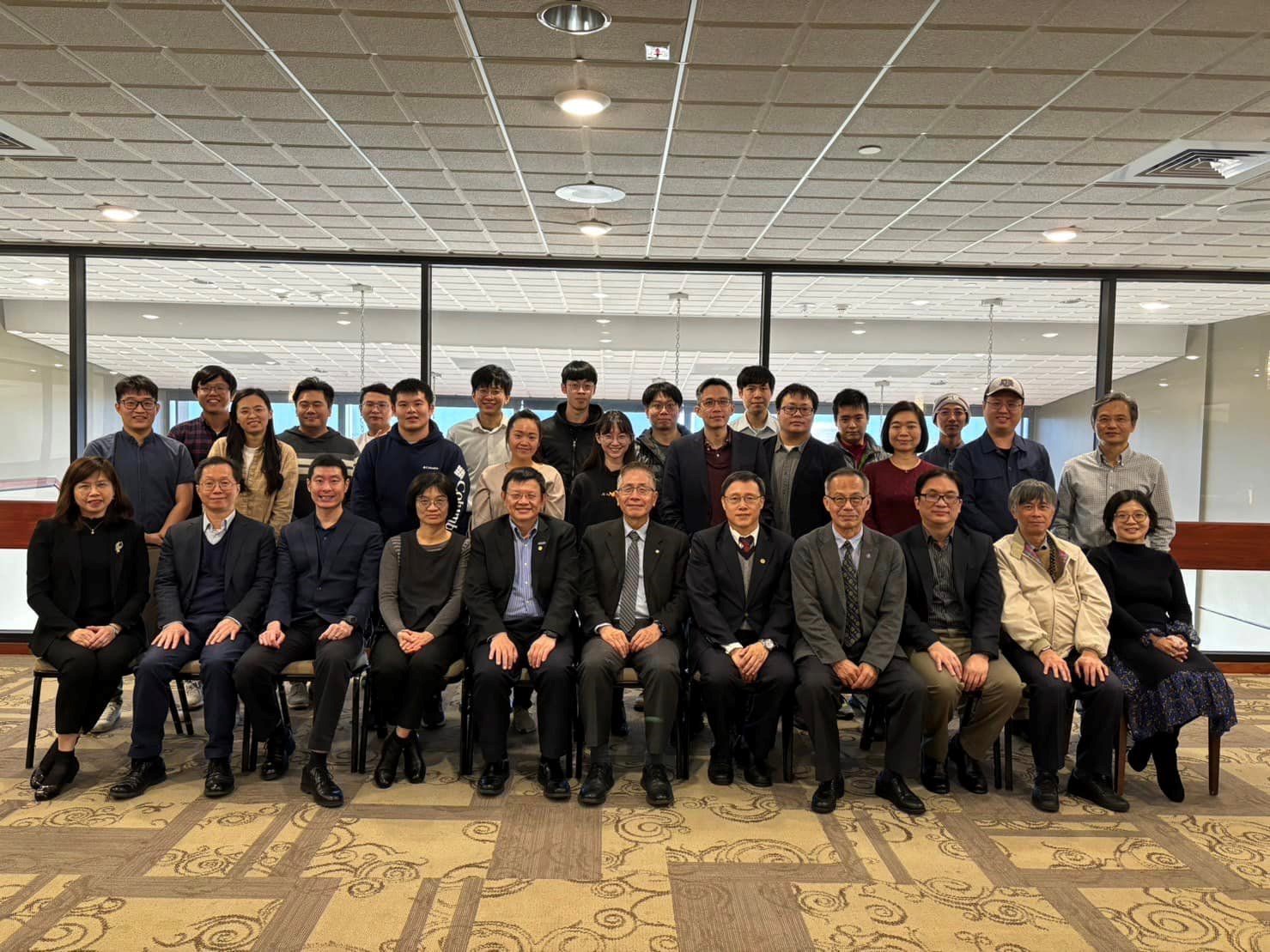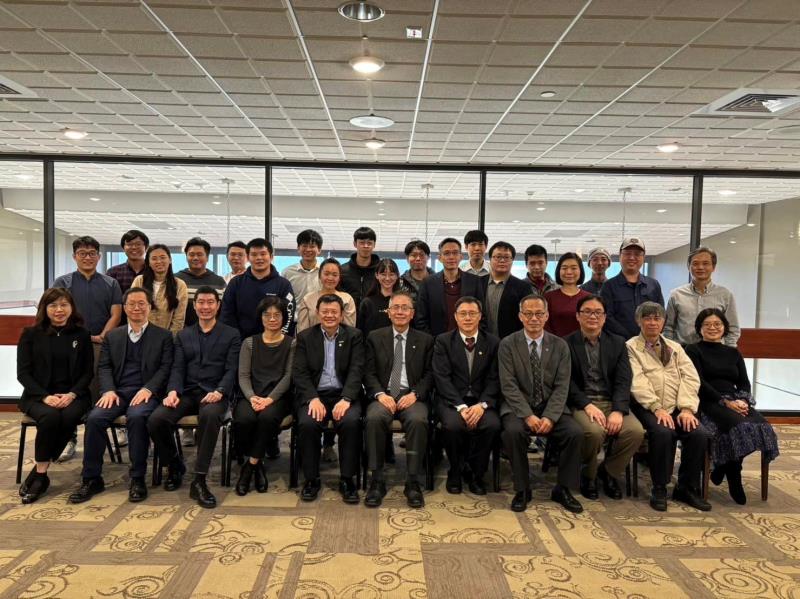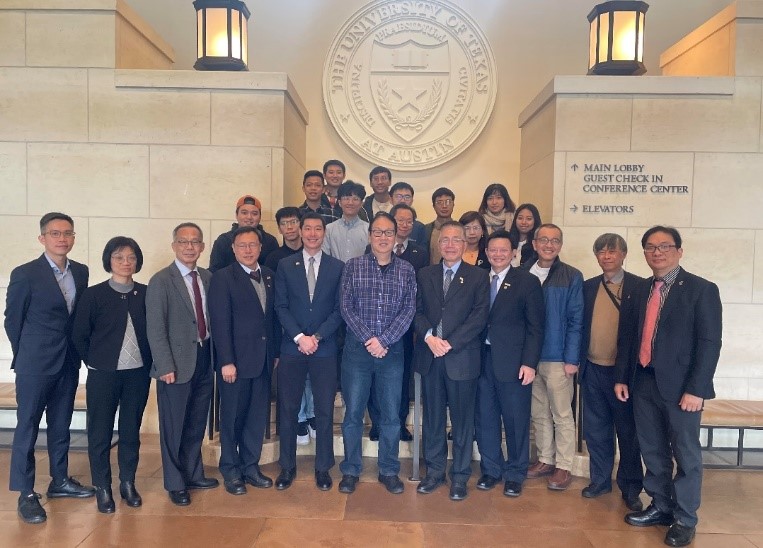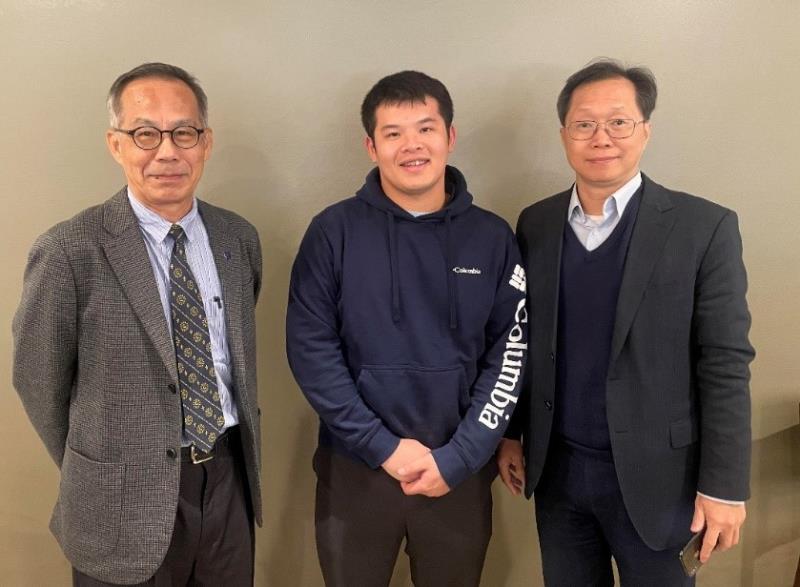University Academic Alliance in Taiwan Recruits Doctoral Students in Texas

The Ministry of Education began implementing the Yushan Scholar Program in 2018 with two main goals – to enhance the competitiveness of higher education in Taiwan, and to promote world-class quality in teaching and research The program offers competitive international salaries to attract highly-skilled people around the world to teach in Taiwan’s universities and encourage outstanding scholars to come and work in Taiwan's academic environment.
A University Academic Alliance in Taiwan (UAAT) delegation, comprising representatives of seven universities, took part in three briefing and recruitment sessions in Texas, organized by the Education Division of the Taipei Economic and Cultural Office in Houston, to outline details of the program to Taiwanese students and scholars currently in the US who are potential Yushan Scholar Program applicants. The delegation led by Dr. Jing-Yang Jou, the president of National Central University, comprised: Dr. Liao Wan-jiun, Executive Vice President of National Taiwan University; Dr. Wu Chung-Chih, Vice President for Research and Development at National Taiwan University; Dr. Chiu Ya-Ping, Deputy Vice President for Research and Development at National Taiwan University; Dr. Chou Chi-Chung, Senior Vice President and Vice President for International Affairs at National Chung Hsing University; Dr. Chen Kwun-Min, Executive Vice President of National Taiwan Normal University; Dr. Wang Li-Chun, Dean and Chair Professor of the College of Electrical and Computer Engineering at National Yang Ming Chiao Tung University; Dr. Huang Yu-Chih, Director of the Globalization and Development Office at the College of Electrical and Computer Engineering, National Yang Ming Chiao Tung University; Dr. Kuo Shiao-Wei, Dean of the College of Engineering at National Sun Yat-sen University; Dr. Tsai Men-Shen, Associate Dean of the College of Mechanical and Electrical Engineering at National Taipei University of Technology; and Dr. Chang Chee-Wei, Chairman of the Department of Space Science & Engineering at National Central University.
The three briefing and recruitment sessions were held in the cities of Houston, College Station, and Austin on November 25, 28, and 29 respectively which attracted more than 60 postdoctoral researchers and doctoral students from well-known institutions in Texas: Rice University, the University of Texas MD Anderson Cancer Center, Baylor College of Medicine, the University of Texas at Austin, and Texas A&M University.
The educators from Taiwan outlined the distinctive features and current plans of their respective institutions and emphasized the special attention given to the needs of young professors in terms of research funding, accommodation, and childcare. They highlighted that these considerations make scholars feel supported and provide a solid foundation for them if they return to Taiwan. They also told the participants, "returning home doesn't require a reason." They stressed that the collaborative environment between industry, government, and academia in Taiwan will significantly contribute to Taiwan's future development, and they hope that highly-skilled people overseas will establish roots in Taiwan, create a support network, and mutually support each other on their teaching and research paths.
Professor Ray Chen, from the Chandra Department of Electrical and Computer Engineering at the University of Texas at Austin, and Professor Dr. Lei-Shih (Lace) Chen and Assistant Professor Shawn Chiang, both from Texas A&M University’s Department of Health and Kinesiology, spoke with international students about their research and teaching experiences in i the United States. They discussed the challenges and rewards of their work and encouraged the students to absorb diverse experiences for future research and teaching endeavors. The speakers emphasized the importance of contributing to their hometown and making a positive impact on their community, regardless of whether they choose to pursue careers in Taiwan or in the United States.
The interactions between the scholars and students at the three sessions were lively and generated many interesting discussions. All the participating doctoral students expressed being happy about having an opportunity to take part in these recruitment activities and gain firsthand understanding of the current state of higher education in Taiwan from the visiting educators. The consensus amongst the participants was that this experience was beneficial by providing them with a clearer possible direction for their postgraduate paths.



